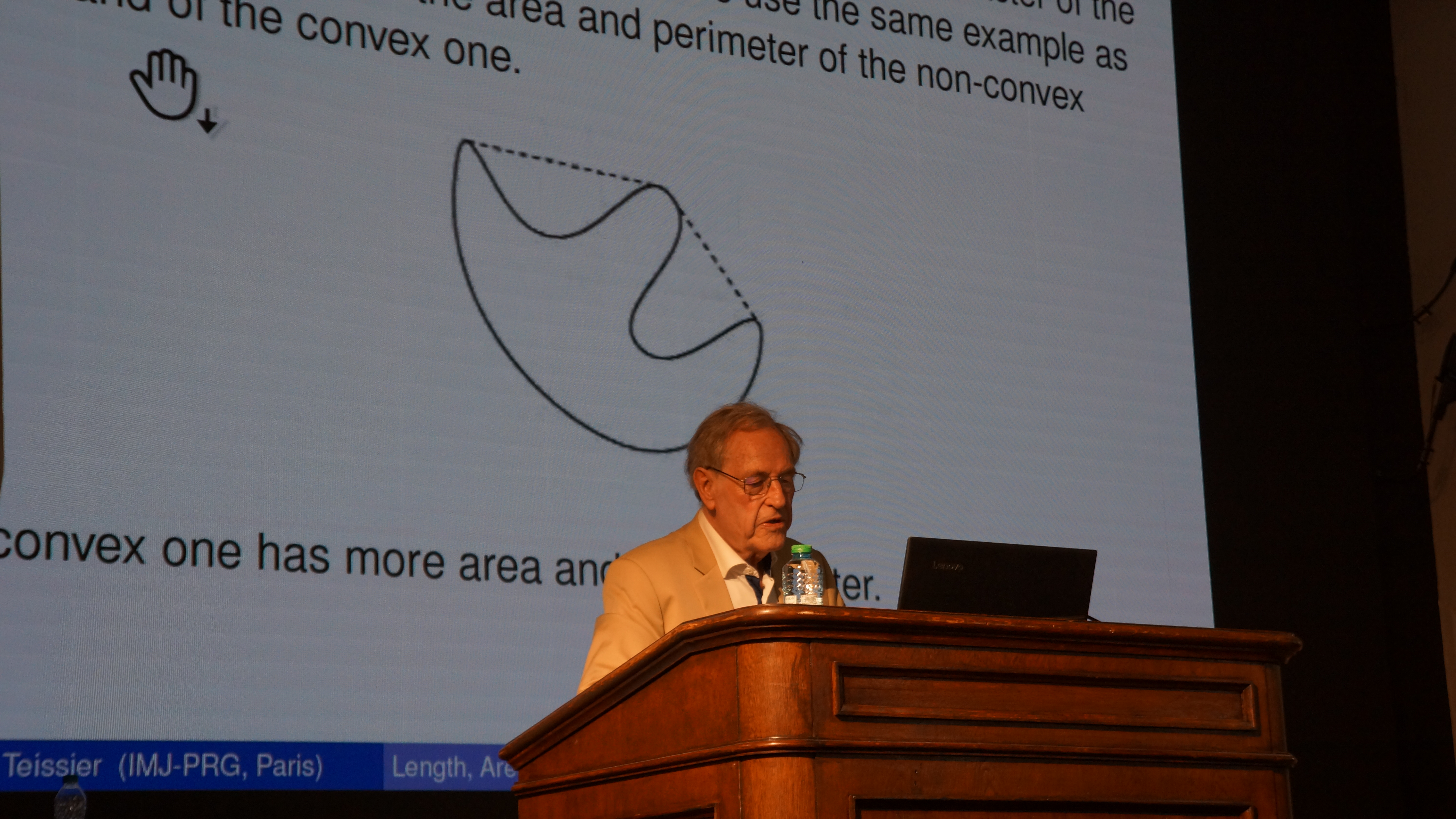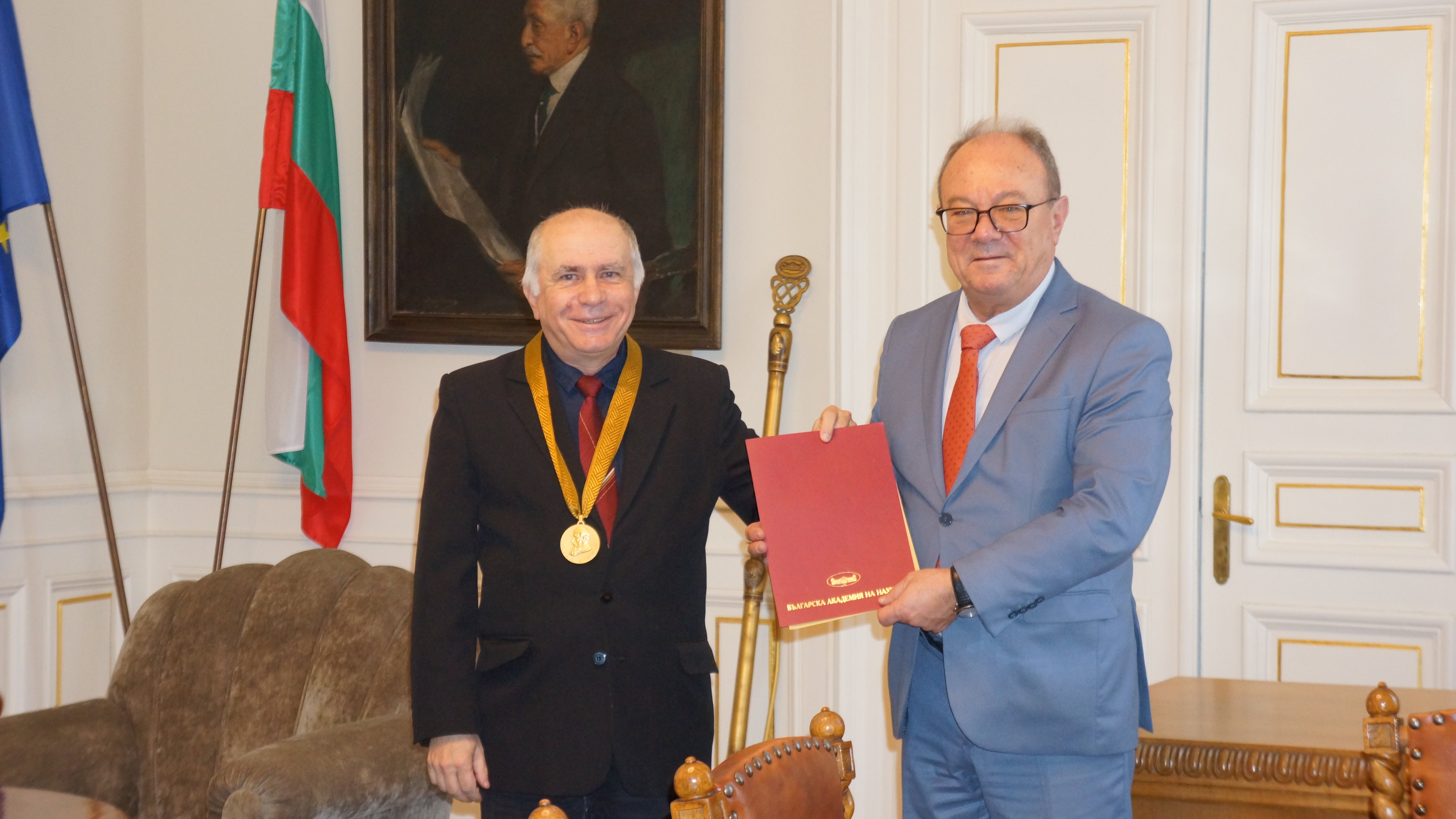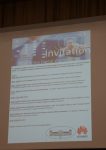 A panel discussion on the topic “Trust in the digital world” was held on September 27 at the Bulgarian Academy of Sciences, together with the technology company Huawei Technologies Bulgaria.
A panel discussion on the topic “Trust in the digital world” was held on September 27 at the Bulgarian Academy of Sciences, together with the technology company Huawei Technologies Bulgaria.
During the discussion, experts shared experiences and knowledge on topics related to trust in the digital world, proactive identification of future cyber threats, biometrically secured community resource sharing, the digital future with artificial intelligence and data management, “smart” cities, infrastructure for high performance computing.
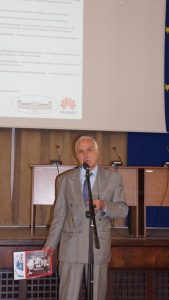 The topics were discussed in front of scientists, representatives of universities, businesses and NGOs. The event was opened by Corr. Mem. Prof. Stefan Hadjitodorov, Vice-President of the Bulgarian Academy of Sciences. “Today we will discuss interesting, new and regional solutions addressing the extremely important topic of cybersecurity challenges. The Bulgarian Academy of Sciences has many experts in this field who are in different institutes, such as the Institute of Information and Communication Technologies, the Institute of Mathematics, the Institute of Robotics. We live in a very dynamic period, the world is changing almost every day, and research in the field of cyber security is of great importance to society. I hope that this discussion will be a modest step towards creating new preconditions for the future of the world, especially in the area of public-private partnerships. Special thanks to the experts from Huawei Technologies Bulgaria and BAS, who will share their experience and competencies in cybersecurity.”
The topics were discussed in front of scientists, representatives of universities, businesses and NGOs. The event was opened by Corr. Mem. Prof. Stefan Hadjitodorov, Vice-President of the Bulgarian Academy of Sciences. “Today we will discuss interesting, new and regional solutions addressing the extremely important topic of cybersecurity challenges. The Bulgarian Academy of Sciences has many experts in this field who are in different institutes, such as the Institute of Information and Communication Technologies, the Institute of Mathematics, the Institute of Robotics. We live in a very dynamic period, the world is changing almost every day, and research in the field of cyber security is of great importance to society. I hope that this discussion will be a modest step towards creating new preconditions for the future of the world, especially in the area of public-private partnerships. Special thanks to the experts from Huawei Technologies Bulgaria and BAS, who will share their experience and competencies in cybersecurity.”
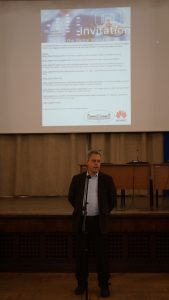 The moderator of the event was Assoc. Prof. Dr. Ivan Georgiev, Scientific Secretary of BAS for Information and Communication Sciences and Technologies. “Technologies are developing every day and give us the opportunity to live better. The exchange of experience, opinions and knowledge in areas such as artificial intelligence, cybersecurity, digitalization is very important, as security in the digital space is key to gaining the trust of consumers and the development of the digital market.“
The moderator of the event was Assoc. Prof. Dr. Ivan Georgiev, Scientific Secretary of BAS for Information and Communication Sciences and Technologies. “Technologies are developing every day and give us the opportunity to live better. The exchange of experience, opinions and knowledge in areas such as artificial intelligence, cybersecurity, digitalization is very important, as security in the digital space is key to gaining the trust of consumers and the development of the digital market.“
Experts who took part shared experiences from different parts of Europe in complex areas such as digitisation and cyber security, as well as the opportunities provided by artificial intelligence and smart cities.
According to Ioannis Solomakos, chief security expert at Huawei – Southern Balkans, “Like everything in life, ‘trust’ is not given, it is earned. The same is true in the digital world where the concept of impartial ‘zero trust’ must become the first layer and step on which trust is built and earned in any ICT ecosystem.”
Corr. Mem. Prof. Svetozar Margenov from the Institute of Information and Communication Technologies at BAS said that “the Center of Excellence for informatics and ICT integrates state-of-the-art scientific infrastructure and highly qualified experts to conduct fundamental and applied research of high societal relevance in priority areas of the Innovation Strategy for Smart Specialization of the Republic of Bulgaria. We are building a unique complex electronic infrastructure including a Center for Innovative Computation and Data Processing and a Laboratory for 3D Digitization and Microstructural Analysis. The commissioned Data Centre has the capacity to store and process petabytes of data. The new petascale supercomputer system will have a peak output of at least 2.6 PFlop/s. The CoE realizes the strategic concept of synergy between high-performance computing, artificial intelligence and high-performance data analytics.”
“This is a great opportunity to engage leaders from the Bulgarian Academy of Sciences and share insights on enabling the digital future with Artificial Intelligence and data management. In the panel discussion, we share insights on the leading research of BAS (mechatronics, biomedicine, climate, medicine and bioinformatics, robotics and HPC), its leading cybersecurity research and research partnerships in Europe.” said Pat McCarthy, Senior Advisor for AI Security and Privacy Protection, Huawei Cybersecurity Transparency Center in Brussels.
Associate Professor Zlatogor Minchev, Director of the Joint Training Simulation and Analysis Center at the Institute of Information and Communication Technologies of BAS said that “The topic we are discussing today is a complex solution for identifying complex cyber threats in the current and future digital reality of our world. It combines expert expectations with holistic models that are evaluated using high-performance supercomputing solutions and psycho-physiological assessments of users in different mixed environments representing aspects of reality – augmented, virtual, mixed.”
Tor Saltveit, cybersecurity expert at Huawei Norway, shared how AI is changing today’s world and gave examples. “The use cases for AI are almost limitless. Various industry verticals will provide us with such use cases as smart factories and intelligent traffic control. AI will enable more efficient research by processing large volumes of data and allow complex simulations that were not possible before. And in our personal lives, everyday tasks will be simplified through smart homes, smart appliances, autonomous vehicles and augmented reality.”
“Universities and research institutions share a community with enormous potential. Much has been done in the last decade to support collaboration in this community – EduGAIN, eduroam, eduVPN have been created,” said Dr. Oleg Iliev, Telematics Laboratory at BAS. “The research presented today aims to extend existing solutions and offers a new way to share local resources (print resources, access to labs, etc.) among community members. An important purpose of the research is to provide a secure way to identify the user’s identity, a flexible and scalable architecture and minimal investment by community members in integrating the solution,” he added.
Incremental investment in digital transformation is growing every year, positioning digitisation as a strong enabler of the digital economy and economic growth. Digital transformation is not only about introducing new technologies but also about supporting its development and unlocking its full potential.



